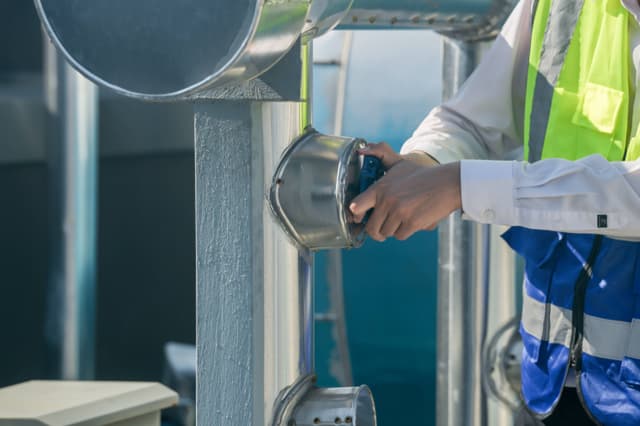Rare Foreign Assets Seized and How You Can Buy Them

Seized foreign assets hold a certain allure for investors and collectors alike. These assets, ranging from luxurious yachts and real estate to priceless artwork and jewelry, are often seized by governments due to legal issues, tax evasion, or even criminal activities. But did you know that you can actually buy these assets? In this article, we’ll give you information into what happens to foreign assets after they are seized, how you can legally purchase them, and why this market could be a treasure trove for savvy buyers. Let’s explore the ins and outs of purchasing seized foreign assets, and how you can take advantage of opportunities that most people don’t even know exist.
Table of Contents
- Introduction
- What Are Foreign Assets Seized?
- How Are These Assets Seized?
- Why Are Seized Assets Valuable?
- Types of Seized Foreign Assets
- How Can You Buy Seized Foreign Assets?
- Where to Find Seized Asset Auctions
- Legal Considerations Before Buying
- Risks Involved in Purchasing Seized Assets
- Benefits of Purchasing Seized Foreign Assets
- Steps to Successfully Purchase Seized Assets
- How to Ensure You're Getting a Good Deal
- Case Studies: Notable Foreign Asset Sales
- Conclusion: Is It Worth Investing in Seized Assets?
- FAQs About Buying Seized Foreign Assets
1. Introduction
Imagine walking into an auction and walking out with a million-dollar yacht or a piece of luxury real estate at a fraction of the price. Sounds impossible? Not when it comes to buying foreign assets that have been seized by governments. But how do these opportunities arise, and how can the average buyer take advantage of them?
This article is designed to explain everything you need to know about foreign assets seized, including how they are seized, where to buy them, and the potential risks and rewards involved. If you’re looking for a new investment opportunity or just curious about this lesser-known market, read on.
2. What Are Foreign Assets Seized?
When we talk about foreign assets seized, we are referring to properties, vehicles, financial assets, or other items of value that are confiscated by governments or international authorities. These assets are often the result of legal proceedings, such as unpaid taxes, corruption, money laundering, or involvement in criminal activities. Governments then take ownership of these assets and, in many cases, sell them to the highest bidder through public or private auctions.
The term "seized foreign assets" might sound complex, but in reality, it’s simply a case of governments taking ownership of valuable items that were either illegally obtained or tied to illegal activities.
3. How Are These Assets Seized?
Seizure of foreign assets typically occurs after a legal battle or government intervention. For instance, assets may be confiscated due to non-payment of taxes, involvement in criminal organizations, or violations of international trade laws. Different countries have different laws regarding asset seizure, but most follow a similar process. Once an asset is seized, it becomes the property of the state, and it is either held for public use or auctioned off.
In some cases, these assets are seized as part of international sanctions or asset freezes aimed at individuals, corporations, or even governments involved in illegal activities.
4. Why Are Seized Assets Valuable?
Seized assets can be extremely valuable, not just because of their inherent worth, but also due to the circumstances under which they are sold. Typically, when governments sell seized assets, they are doing so to recover lost revenues or fulfill legal obligations. This often means that the assets are sold at auction for less than their market value, making them attractive to buyers looking for a good deal.
Imagine buying a luxury car that was once owned by a billionaire for half its market price. That’s the allure of purchasing seized foreign assets—buying valuable items at discounted rates.
5. Types of Seized Foreign Assets
There’s a wide variety of foreign assets that can be seized and later sold to the public. Some of the most common types include:
- Real Estate: Luxury homes, commercial buildings, and land holdings.
- Vehicles: High-end cars, boats, and private jets.
- Jewelry and Art: Rare paintings, sculptures, and valuable gems.
- Financial Assets: Stocks, bonds, and other investment vehicles.
These assets often represent the best of the best, as they were owned by wealthy individuals or companies before being seized.
6. How Can You Buy Seized Foreign Assets?
So, how do you go about buying one of these valuable assets? The most common method is through auctions. Governments often organize public auctions where anyone can bid on seized assets. These auctions may be held in person or online, and some are open to international buyers.
Here’s a quick rundown of the process:
- Find an auction (we’ll cover that in detail below).
- Register to bid (this usually requires you to verify your identity and financial capacity).
- Place your bids during the auction.
- Win the auction and finalize the purchase by paying for the asset and completing any necessary paperwork.
7. Where to Find Seized Asset Auctions
There are several places where you can find auctions for seized foreign assets:
- Government websites: Many countries have dedicated portals where they list auctions of seized assets. In the United States, for example, you can check sites like the U.S. Marshals Asset Forfeiture Program.
- Auction houses: Some international auction houses specialize in seized assets and hold regular events.
- Online auction platforms: Websites like eBay or specialized platforms such as GSA Auctions often feature foreign assets seized and available for purchase.
Always ensure you are dealing with a reputable auctioneer or platform to avoid scams.
8. Legal Considerations Before Buying
While the prospect of purchasing seized foreign assets can be exciting, it’s important to consider the legal ramifications. First and foremost, make sure the asset’s ownership title is clear. In some cases, assets may be subject to ongoing legal disputes or international claims, which could complicate the buying process.
Additionally, different countries have different regulations regarding the sale of seized assets, so it's essential to familiarize yourself with local laws or consult a legal expert before making any purchases.
9. Risks Involved in Purchasing Seized Assets
Every investment comes with risks, and buying seized foreign assets is no different. Some of the risks involved include:
- Unclear Ownership: As mentioned earlier, the ownership of some seized assets may be disputed.
- Condition of the Asset: Since these assets are often confiscated abruptly, their condition may be unknown.
- Legal Ramifications: Some assets may come with legal strings attached, like unpaid taxes or debts.
Be sure to do thorough research and consult with professionals before making any purchases.
10. Benefits of Purchasing Seized Foreign Assets
While there are risks, the potential benefits are significant. Some of the advantages include:
- Lower Prices: Seized assets are often sold below market value, providing an opportunity for bargains.
- Diverse Range: From real estate to luxury vehicles, there’s a wide range of options available.
- Unique Items: Seized assets can include rare or unique items that are difficult to find elsewhere.
11. Steps to Successfully Purchase Seized Assets
To successfully purchase seized foreign assets, follow these steps:
- Research the asset: Know its market value, condition, and any legal implications.
- Register for the auction: Make sure you meet all the criteria to participate.
- Set a budget: Know how much you're willing to spend and stick to it.
- Bid smartly: Don’t get caught up in a bidding war; know when to walk away.
- Complete the purchase: After winning, ensure all paperwork is completed promptly.
12. How to Ensure You're Getting a Good Deal
Getting a good deal on a seized asset involves doing your homework. Look up similar items, consult experts, and set realistic expectations for the auction. Keep in mind that while some assets may be bargains, others may require costly repairs or have hidden fees attached.
13. Case Studies: Notable Foreign Asset Sales
To give you a sense of what’s possible, let’s look at a few famous examples:
- Pablo Escobar’s properties: After the fall of the notorious drug lord, many of his luxury properties were seized and sold to the public.
- Oligarch yachts: In recent years, several high-end yachts owned by Russian oligarchs were seized and sold by governments.
- Artworks from criminal enterprises: Priceless works of art have been confiscated and auctioned off following high-profile legal cases.
14. Conclusion: Is It Worth Investing in Seized Assets?
In conclusion, purchasing seized foreign assets can be a worthwhile investment for those who are prepared to take on the risks and navigate the complexities of the process. With proper research and careful planning, you could potentially score a rare asset at a significantly reduced price. However, it’s not for everyone—be sure to weigh the pros and cons before diving into this unique market.
15. FAQs About Buying Seized Foreign Assets
- Can anyone participate in a seized asset auction? Yes, most auctions are open to the public, but some may require you to register in advance or meet certain criteria.
- Are seized assets always sold at a discount? While many seized assets are sold below market value, there’s no guarantee. It depends on the asset and the level of competition at the auction.
- What legal issues should I be aware of when buying seized assets? Be sure to check for any legal claims on the asset, such as unpaid taxes or liens, before making a purchase.
- Are seized foreign assets available worldwide? Yes, many governments around the world hold auctions for seized assets, and some are open to international buyers.
- How can I be sure that a seized asset is in good condition? Inspect the asset, if possible, or request detailed information from the auctioneer to understand its condition before bidding.



